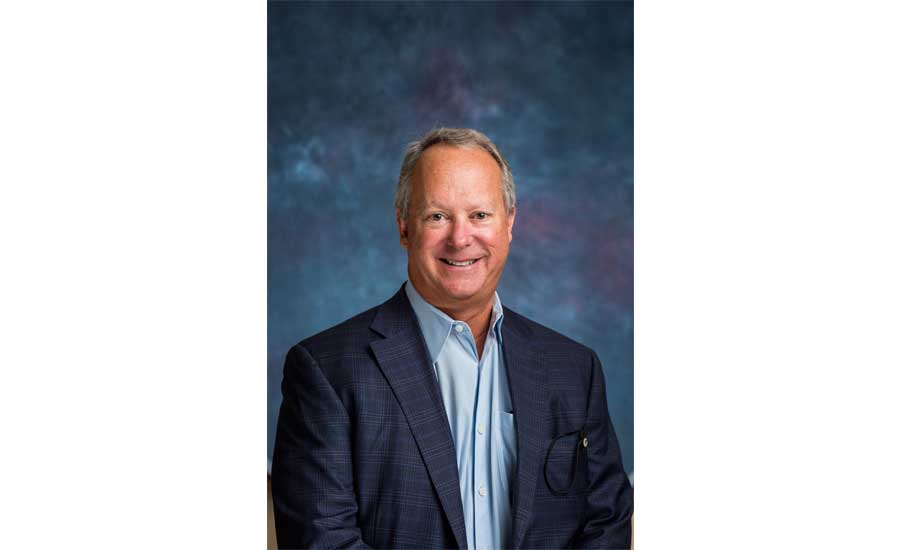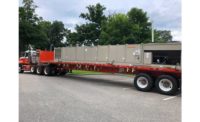A combination of low interest rates and Baby Boomers looking to retire has created a robust deal-making environment. Like most fields with limited concentration, the HVAC business has seen many such deals in the past year.
Hyde Park Capital is boutique M&A firm located in Tampa, Florida. Hyde Park that just celebrated 20th anniversary earlier this year. John McDonald is one of the co-founders and co-general managers. He describes Hyde Park as a generalist firm that covers all industries, including HVAC. They target founder-or family-owned companies and take them to market, working to get the best price for the business.
McDonald said Hyde Park plans to represent a large HVAC services company next year as they do just that. He recently spoke with The ACHR NEWS about the current market for HVAC firms and other businesses, who is buying and what they are looking for.
ACHR NEWS: What is the make-up of buyers for HVAC businesses?
McDonald: There are two universes of buyers. There are financial buyers and there are strategic buyers. About half of our deals go to financial buyers, such as private equity funds. The other half go to strategic buyers.
If you go back 20, 30 years, there weren’t a lot of private equity firms around. Thirty years ago, if a wealthy person went to a wealth advisor, that wealth advisor would ask a lot of questions about expectations for returns and tolerance for risk. Based on those answers, that wealth advisor would put together an asset allocation pie. There were three or four main pieces of that pie. There was cash, stocks and bonds, real estate, and maybe some “other.” Over the last 30 years, private equity started to grow tremendously and investors started to find that investing in private equity funds was a nice diversification.
When a wealthy person today goes to a wealth advisor, the pie looks a lot different. One of the bigger pieces of the pie would be investments in private equity funds. As a result, there are now thousands of private equity funds in the United States, big, little, and small.
In addition to that, very wealthy people asked, “Why should I pay the fees and expenses of a private equity fund when I can just invest in the companies directly myself?” So you have the advent of what are called family offices. Family offices look very similar to private equity funds, except they don’t have to have a divesture horizon. They can hold on to these companies forever.
I lump private equity and family offices together because they are both financial investors. What a financial investor is looking for is purely a return on investment. The private equity firms do have to flip the deals after five or six years.
Many private equity firms have two types of investments. They have platform investments where they enter into a new space with a foundational investment. It has to big enough to stand on its own. Then they have add-ons. They keep trying to add on because they know the bigger the company gets, the more the company is worth. So they buy a foundational platform and then actively search for add-ons to supplement organic growth. After five or six years of very good growth, they sell the company and they hope to make a very good return on their investment.
On the strategic side, these are corporations that have a strategic reason to buy a company. This could be anything from diversification of customer base to diversification of products and services. It could be to take out a competitor. There are all kinds of different reasons for these acquisitions. They don’t have holding periods. They typically buy and then integrate that acquisition into their existing business.
ACHR NEWS: HVAC services is a very fractured industry. Is there a lot of opportunity for consolidation?
McDonald: Any industry that is large and fragmented is ripe for consolidation. We are seeing private equity firms consolidating HVAC companies, and we are seeing a lot being bought up by strategic buyers.
ACHR NEWS: If I’m a contractor who is looking to take his firm to market, how do I make my company look more attractive?
McDonald: We give advice on what you need to make your company more attractive and we interface with the capital markets. We ask for a broad mandate to go to both strategic buyers and financial buyers. It gives us the ability to create more attractive options for you. When the options are all laid out on the table, you can compare and analyze. One option is that if you don’t like any of the choices, you stay independent and grow your company.
ACHR NEWS: Selling you company doesn’t always mean giving up your day-to-day role, does it?
McDonald: It depends if you’re a platform or an add-on. If you’re a platform, they are investing in the jockey and not the horse. The investor wants to keep the management team largely intact. They will work with that team to grow the company as rapidly as they can over the next five years through both organic growth and acquisitions.
If you’re an add-on, it’s a little different story. You’re being added on to a platform, and they may or may not need you. They have their own people. If it’s a new geography, they may want to keep the current management team because they don’t have the people in that market.
ACHR NEWS: Does size matter, or is it more about the market?
McDonald: In the M&A world, bigger is better. The bigger you are, the more valuable you are in terms of multiple. The companies are valued by EBIDA (earnings before interest, debt, and amortization). The multiple that investors will apply to the EBIDA expands with size.
That’s why these roll-up strategies are so attractive. Let’s say a private equity firm buys a platform for eight times EBIDA. The smaller add-ons they can buy for four times EBIDA. So they keep buying these little firms, and the company becomes so big that it’s worth 10 times EBIDA when they go to sell it. And they’re using cheap debt financing, so they get huge returns on equity. You’re buying low and selling high. That’s how these private equity firms make such high returns. That’s why it’s an attractive asset class, and that’s why wealth advisors now have a large piece of the allocation pie dedicated to private equity.
ACHR NEWS: The term “financial engineering” makes some people uneasy. What does it really mean?
McDonald: Let’s say you buy a company for a million dollars cash. You sell it five years later for $2 million. That’s a 100 percent return on your money. Let’s say instead you buy that same company for $1 million, but $400,000 cash and $600,000 is borrowed at a 5 percent interest rate. Five years later, we sell the company for $2 million. We need to pay back the $600,000. Then you subtract out another $150,000 for interest. Now you have $1.25 million. You put in $400,000 cash. You make over three times your money.
You’re using cheap debt to leverage your equity dollars to that when you sell it, you get a much higher return on equity. Debt has been absolutely dirt cheap. It’s been cheap for a long time. That’s part of what has been driving all the deal activity.
ACHR NEWS: Who buys the firms after the five years?
McDonald: You have small funds, medium-sized funds, and large funds. Small funds buy smaller companies, grow them, and then sell them to the larger funds. It’s symbiotic. The big funds need the smaller funds to basically incubate the companies until they get to the point they can sell them. They’ll come to investment bankers like us and we’ll go other private equity funds, family offices, strategic buyers.
ACHR NEWS: So if I’m an HVAC services company looking to sell, why would I come to you?
McDonald: It’s like selling your house. You can always try to sell it yourself. You’re probably going to do better if you use an agent that can market it more broadly.
Selling a company is no different. An HVAC owner is really knowledgeable about HVAC services. But you don’t know how to run a competitive sales process to get you the best price for your company. So you hire a firm like ours and outsource the process. If we’re successful, you pay us a fee at closing. We’ll yield the best price the market will bear.
ACHR NEWS: What role do financial records play?
McDonald: At the end of the day, it’s a financial transaction, so you have to have good financials. You have to financials that will hold up to due diligence. They have to be on an accrual basis. They have to be in accordance with GAAP standards. There needs to be third-party validation of the numbers.
You need a business that is growing and bigger is better.
ACHR NEWS: What misconceptions do people have when they come to you to sell their businesses?
McDonald: They think that selling company means getting 100 percent cash at closing. A strategic buyer will do that. In the world of private equity, they deal structure is limited by your imagination. If it’s a platform, you’ll sell anywhere from 51 percent to 80 percent.








